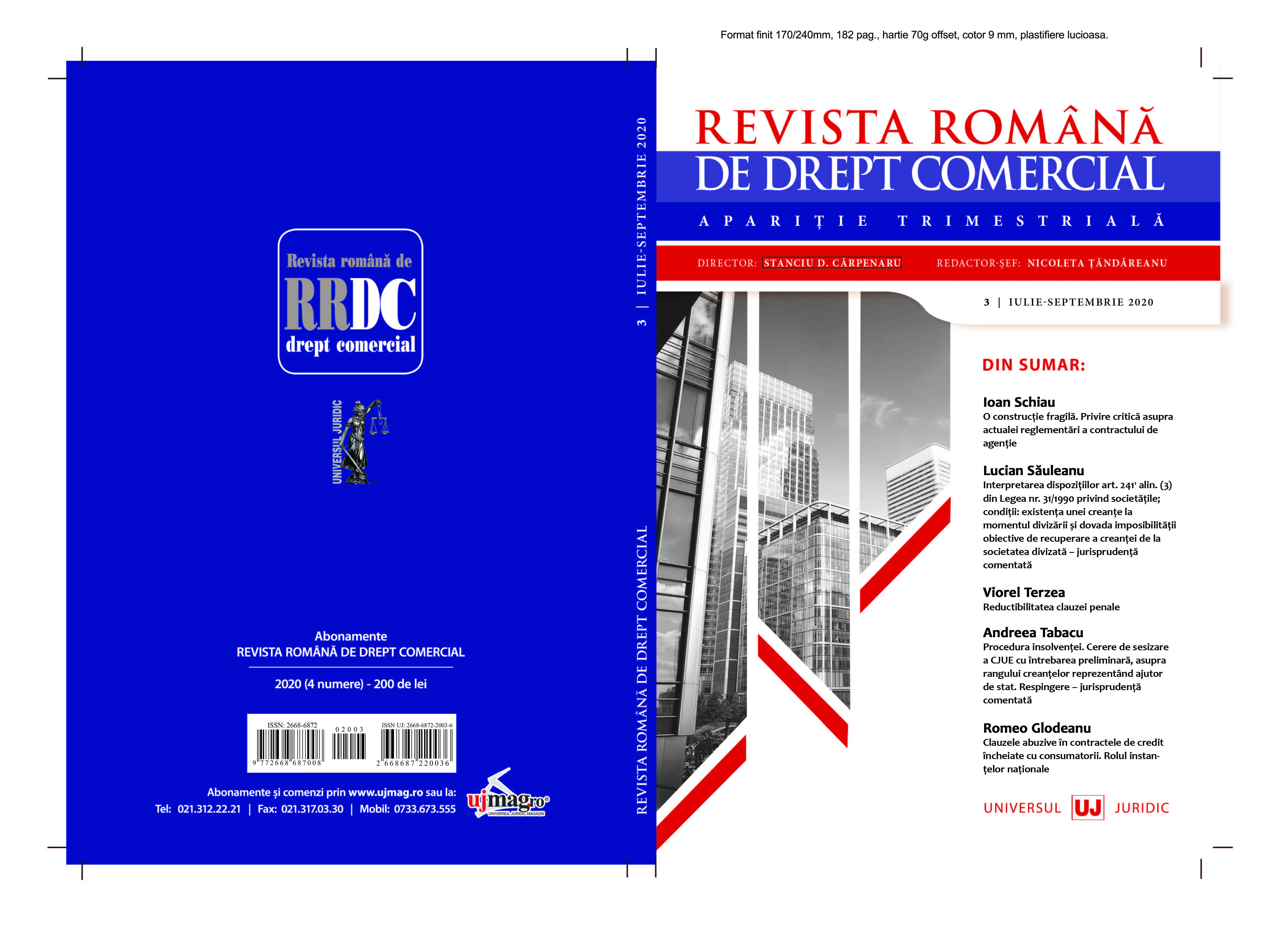Clauzele abuzive în contractele de credit încheiate cu consumatorii. Rolul instanţelor naţionale
Abusive clauses in credit agreements concluded with consumers. The role of national courts
Author(s): Romeo GlodeanuSubject(s): Law, Constitution, Jurisprudence, Civil Law
Published by: Universul Juridic
Keywords: credit agreement; abusive clauses; jurisprudence of CJUE; consumers; Directive 93/13/CE;
Summary/Abstract: The issue of the abusive clauses inserted in the credit agreements concluded with consumers have sparked vivid disputes over time, both doctrinal between legal professionals and in the case law, an area in which the solutions handed down by the courts have not always been so harmonized as desired by the European legislator with the adoption of Council Directive 93/13/EEC. Two major objectives were pursued by the European legislator by adopting the indicated European Union law act. On the one hand, the purpose of the directive was to ensure a high level of consumer protection in the Member States of the European Union, within the contracts concluded with a professional, especially in the framework of pre formulated standard contracts and those in which the possibilities of consumer to negotiate are significantly limited, especially those where the consumer does not have the opportunity to influence the general or specific terms of the contract, as these are established by the professional trader with whom a determined legal relationship is concluded. On the other hand, the Directive no. 93/13, called the directive on the abusive clauses in the contracts concluded by the consumers, sought to counterbalance the abuse of power sometimes manifested by traders, who taking advantage of their position on the market of the product or service which they provide, inserted in the contracts concluded with the consumers clauses that are able to imbalance the content of the respective legal report, to the detriment of the consumer and contrary to the requirements of good faith. Specifically, the great majority of the litigations generated by the applicability of the above mentioned directive are represented by the abusive clauses in the credit loan agreements, an important role in this dominant position being played by both the high financial stake of such litigation and the relatively long period of time for which the contracts in question are concluded. Out of this results the special impact that this type of credit contracts exert on the consumer, impact that was envisaged by the European legislator by putting at the disposal of the consumers this legal instrument, one which we think is apt to rebalance the negative effects impacted on the rights and the obligations assumed by the consumer by concluding the credit loan in the content of which one or more clauses of an abusive nature have been inserted by the professional creditor. The aforementioned directive, which constitutes the general framework in the field of abusive clauses inserted in the credit agreements, has been transposed into national law by Law no.193/2000, the national legislator opting for its adoption in the domestic legislative landscape without spectacular changes in its normative content. Although the purpose of the directive was, as we have shown, to provide consumers with a high level of protection against abusive clauses that are not negotiated by the parties, by harmonizing the applicable national rules in this area, there is still a considerable margin of discretion left to the national courts, which will significantly influence the solution that can be handed down in a specific cause. In particular, this margin of discretion will be the subject of the present analysis.
Journal: Revista română de drept comercial
- Issue Year: 2020
- Issue No: 03
- Page Range: 120-141
- Page Count: 22
- Language: Romanian
- Content File-PDF

